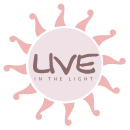Energy... Brain... Immunity
DR.VEGAN® Vitamin B12 - in the form of methylcobalamin - is in the most bio-available form, is easy to digest and kind on your body.
Vitamin B12 is essential because it helps produce red blood cells which in turn carry oxygen around your body. If your body doesn't have enough red blood cells, it can contribute to tiredness, fatigue and anaemia.
B12 is also important for lowering homocysteine - a common amino acid - in your blood which is important for your brain's cognitive health and your nervous system. High levels of homocysteine are linked to a higher risk of heart disease and can affect cell health, which has been linked to dementia and Alzheimer's disease.
If you're vegetarian or vegan it is quite possible you will not be getting enough B12 through your diet. Older adults and people with certain health conditions have trouble absorbing B12 which can also lead to deficiency.
Food supplements should not be used as a substitute for a varied balanced diet and a healthy lifestyle. If you are pregnant, breastfeeding, taking any medications or under medical supervision, please consult a doctor or healthcare professional before use. Discontinue use and consult a doctor if adverse reactions occur.
Why So Good?
Our Vitamin B12 is in the most absorbable form, helping your body convert food into glucose, the source of energy in your body. B12 is a must-have if you're low on energy or on a plant-based diet
How to Take?
Take one capsule a day with food.
We recommend taking your Vitamin B12 in the morning or at lunchtime to support your energy for the day ahead.
5 Signs of low Vitamin B12
1. Feeling weak and fatigued
Vitamin B12 is vital for making healthy red blood cells which carry oxygen around your body. Low levels of Vitamin B12 can reduce the oxygen being transported to your body’s cells, making you feel tired and weak.
2. Feeling dizzy and out of breath
Anaemia caused by Vitamin B12 deficiency can result in feeling dizzy and out of breath. This happens as the red blood cells are not able to transport enough oxygen to your body’s cells.
3. Mouth ulcers and sore tongue
A sore, red or swollen tongue can be an early sign of Vitamin B12 deficiency.2 The inflammation of the tongue makes it look smooth and can change the way you speak and eat. This condition is known as ‘Glossitis’. Mouth ulcers may also occur with Vitamin B12 deficiency.
Ulcers and burning mouth and tongue is also a symptom of menopause, learn more about the surprising and more unusual symptoms of menopause.
4. Pale or yellow tinge to the skin and white of the eyes
Vitamin B12 deficiency can lead to a type of anaemia called ‘mega-loblastic anaemia’, in which the red blood cells are large and fragile.
The fragile red blood cells break down causing an excess of 'bilirubin', a slightly brown or red coloured substance that is produced by the liver when old red blood cells are broken down. This is what gives the skin and whites of the eyes a yellow tinge.
5. Pins and needles
Vitamin B12 is needed to produce 'myelin', a substance that forms a protective layer around your nerves. Low Vitamin B12 can lead to damage to this protective layer and cause nerves to stop functioning properly. Pain, numbness or a prickling sensation in your hands and feet, like pins and needles, may occur when your Vitamin B12 levels are low.
If a Vitamin B12 deficiency is left untreated, damage to the nervous system could affect your balance and coordination, which can impact the way you walk and move.
Who's at risk of Vitamin B12 deficiency?
Deficiency of Vitamin B12 usually occurs due to problems with how your body absorbs it. Vitamin B12 has to be combined with a protein in your stomach called ‘intrinsic factor’ before your body can absorb it. Pernicious (harmful) anaemia can occur when you have a lack of ‘intrinsic factor’ and is a condition most commonly found among middle-aged and older adults.
Vitamin B12 deficiency due to inadequate dietary intake is less common, however it is much more common among plant-based and vegan diets because B12 primarily comes from animal foods. If your diet is vegan or plant-based and you’re not eating animal foods, or foods fortified with Vitamin B12, it is likely you won't be getting enough Vitamin B12.
Opt for foods fortified with Vitamin B12 including yeast extract, such as Marmite or yeast flakes, some plant milk alternatives, soya yoghurts and breakfast cereals. Also consider a Vitamin B12 supplement.
Vitamin B12 is 'The Energy Vitamin' and is essential for the production of red blood cells, fuelling our energy and helping maintain a healthy heart.
Ingredients
INGREDIENTS: Vitamin B12 (Methylcobalamin), Brown Rice Flour, Capsule Shell (HPMC, vegetable cellulose).
FREE FROM: Added Sugar, Starch, Sweeteners, Gluten, Wheat, Soya, Lactose, Dairy, Artificial Flavours, Colours and Preservatives.
Food supplements should not be used as a substitute for a varied balanced diet and a healthy lifestyle. If you are pregnant, breastfeeding, have any existing health conditions, taking any medications or under medical supervision, please consult a doctor or healthcare professional before use. Discontinue use and consult a doctor if adverse reactions occur.





